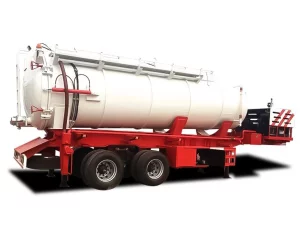Monday to Saturday - 8:00 -17:30
Tune Up Your Car: The Ultimate Guide to Vehicle Maintenance
Maintaining your car’s performance and extending its lifespan are crucial for any car owner. One of the most effective ways to ensure your vehicle runs smoothly is through a car tune-up. In this comprehensive guide, we’ll delve into everything you need to know about tuning up your car, including the benefits, necessary components, and practical tips for both beginners and experienced car enthusiasts.
What is a Car Tune-Up?
A car tune-up refers to a series of maintenance tasks aimed at ensuring that your vehicle’s engine runs efficiently and lasts longer. These tasks can include replacing spark plugs, air filters, fuel filters, and various other components. Car tune-ups are vital for maximizing performance, fuel efficiency, and overall safety on the road.
Importance of Regular Tune-Ups
- Improved Engine Performance: Regular tune-ups help maintain optimal engine performance.
- Increased Fuel Efficiency: A well-tuned engine consumes less fuel, saving you money.
- Prolonged Vehicle Lifespan: Regular maintenance can extend the life of your car.
- Reduced Emissions: A tuned car emits fewer pollutants, benefiting the environment.
Signs Your Car Needs a Tune-Up
It’s essential to recognize when your car may need a tune-up. Here are some common signs:
1. Decreased Fuel Efficiency
If you’re filling up your gas tank more frequently than usual, it may be time for a tune-up.
2. Rough Idling or Engine Misfires
Experiencing shaky idling or engine misfires can indicate issues that require attention.
3. Trouble Starting Your Car
If your car takes longer to start or has difficulty starting, a tune-up might be necessary.
4. Illuminated Check Engine Light
A lit check engine light can signify various problems, including those necessitating a tune-up.
5. Unusual Noises or Vibrations
Any new noises or vibrations when driving should be investigated, as they may indicate tune-up needs.
Key Components of a Tune-Up
A complete car tune-up typically involves checking and replacing several key components. Below, we break down these components and their importance.
1. Spark Plugs
Spark plugs ignite the air-fuel mixture in your engine. Worn or dirty plugs can cause misfires and decreased performance. They should be replaced every 30,000 miles or as recommended by your vehicle’s manufacturer.
2. Air Filter
The air filter prevents dirt and debris from entering the engine. A clogged air filter can lead to reduced performance and efficiency. Replace it every 15,000 to 30,000 miles.
3. Fuel Filter
The fuel filter cleans the fuel entering the engine. A clogged fuel filter can hinder performance. It typically needs replacement every 30,000 miles.
4. Oil Change
Regular oil changes are crucial for engine life. Clean oil ensures proper lubrication, while dirty oil can cause engine wear.
5. Ignition System
This includes the ignition coil, wires, and distributor cap. Ensuring these components are in good condition is essential for optimal engine function.
6. Battery and Charging System
A well-maintained battery is vital for starting the engine. Check for corrosion and ensure connections are tight.
7. Belts and Hoses
Inspect belts and hoses for signs of wear and replace them if necessary to prevent breakdowns.
How to Perform a Basic Tune-Up
While some may prefer to take their car to a mechanic, performing a basic tune-up at home is feasible with the right tools and advice. Here’s a step-by-step guide.
Step 1: Gather Your Tools
- Wrenches
- Screwdrivers
- Socket set
- Oil filter wrench
- Plier
- Jack and jack stands
Step 2: Change the Oil and Filter
Start by draining the old oil and replacing the oil filter. Fill in the new oil according to your vehicle’s specifications.
Step 3: Replace Spark Plugs
Remove the old spark plugs with a socket wrench and install new ones, ensuring they are appropriately gapped as per the manufacturer’s recommendation.
Step 4: Change Air and Fuel Filters
Remove the old air and fuel filters and replace them with new ones following the specific instructions for your vehicle.
Step 5: Inspect and Replace Other Components
Check the battery cables, belts, and hoses for wear. Replace any components that show signs of wear or damage.
Common Mistakes to Avoid During a Tune-Up
- Neglecting to Check the Owner’s Manual: Always refer to the owner’s manual for specifications and recommendations.
- Skipping Regular Maintenance: Regularly scheduled tune-ups are essential for vehicle longevity.
- Using Improper Parts: Always use parts that meet or exceed OEM standards for the best results.
Professional Vs. DIY Tune-Ups
Advantages of Professional Tune-Ups
Taking your vehicle to a professional garage can offer benefits such as:
- Expertise: Mechanics have training and experience for accurate diagnostics.
- Time-Saving: Professionals can complete jobs much quicker than a DIYer.
- Comprehensive Maintenance: A mechanic may catch issues that an untrained eye might miss.
When to Choose DIY Tune-Ups
DIY is suitable when:
- You have some mechanical knowledge and skills.
- You want to save money on labor costs.
- You enjoy working on cars and want to learn more.
Cost of a Tune-Up
The cost of a tune-up can vary based on factors like your vehicle’s make and model, and whether you do it yourself or hire a professional. Here’s a breakdown:
| Service | DIY Cost Estimate | Professional Cost Estimate |
|---|---|---|
| Oil Change | $30 – $50 | $50 – $100 |
| Spark Plug Replacement | $20 – $60 | $100 – $200 |
| Air Filter Replacement | $10 – $30 | $30 – $70 |
| Fuel Filter Replacement | $10 – $30 | $50 – $100 |
| Total Estimated Cost | $80 – $170 | $230 – $470 |
DIY Maintenance Tips for Optimal Performance
1. Keep It Clean
Regularly wash your car’s exterior and clean the interior to maintain its overall condition.
2. Check Tire Pressure
Maintaining proper tire pressure can enhance fuel efficiency and extend tire life. Check it monthly.
3. Monitor Fluid Levels
Check engine oil, coolant, brake fluid, and transmission fluid regularly to avoid issues.
4. Drive with Care
Improve your vehicle’s lifespan and efficiency by driving sensibly. Avoid rapid acceleration and hard braking.
FAQs About Car Tune-Ups
1. How often should I tune up my car?
Most manufacturers recommend a tune-up every 30,000 miles or every two years, but refer to your owner’s manual for specific guidance.
2. Can I perform a tune-up myself?
Yes, if you have basic mechanical skills and the right tools. Many people successfully perform tune-ups at home.
3. What happens if I skip a tune-up?
Neglecting tune-ups can lead to decreased performance, lower fuel efficiency, and potential long-term damage to your engine.
4. What is the difference between a tune-up and regular maintenance?
A tune-up is focused on engine performance, while regular maintenance includes various other services to keep your entire vehicle in good health.
5. How do I know if I need new spark plugs?
Signs like engine misfires, decreased performance, or rough idling may indicate the need for new spark plugs.
6. Are there specific tools I need for a tune-up?
Common tools include wrenches, screwdrivers, a socket set, and possibly a jack and jack stands for some services.









